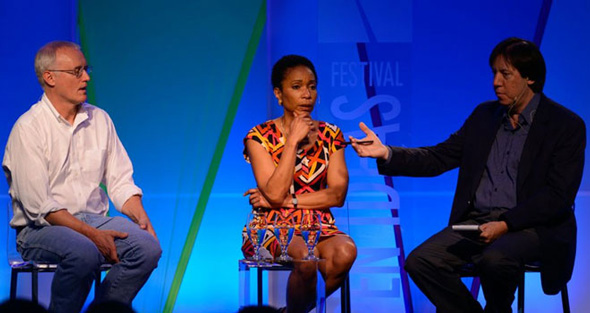The original version of this article, by Gwen Hopkins, appeared on the Aspen Ideas Festival blog. The pictures flash quickly: lush sea vegetation replaced by empty grey-blue seabed as carbon bubbles out of undersea vents. Reservoirs depleted too quickly, never to refill. Forests and mountains leveled for coal, deep sea oil rigs ablaze, the arctic ice cap visibly retreating.
Dennis Dimick is answering the question posed to him with a litany of evidence collected by
National Geographic: Does population matter?
Yes, he says – a lot.
Kicking off the Our Planet: The World at Seven Billion track, on a panel called “The Population Challenge,” Washington Post staff writer Joel Achenbach moderated a conversation between Dimick and Helene Gayle, president and CEO of CARE USA, following Dimick’s presentation about how the earth’s human population has made its presence known.
Dimick explains that this new geologic era has been dubbed Anthropocene, the age of man, as we “transform the planet to perpetuate our lifestyle.” That’s a lifestyle powered first and foremost by what he calls “the new sun” – coal, oil, and gas, or in Dimick’s words, “ancient plant goo.” These transformations are deep and widespread – and according to Dimick, growing worrisome in their magnitude. While there is searing inequity – “few have a lot, and a lot have few” – those that lead the consumption have, for example, caught 90 percent of the big fish in the sea already, and burn in one year a quantity of fuel that took a million years to coalesce underground. “If everyone in the world lived like Americans do, we’d need four planets.”
Continue reading on the Aspen Ideas Festival blog.
Photo Credit: Aspen Institute.

 A Publication of the Stimson Center.
A Publication of the Stimson Center.




